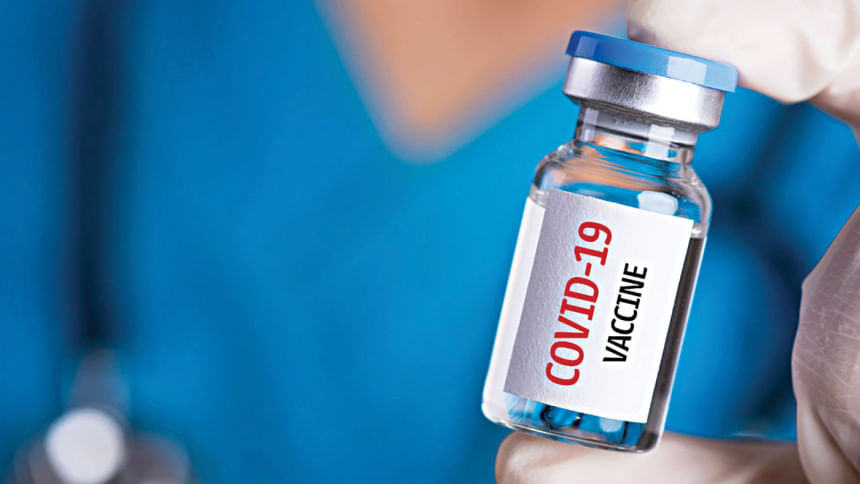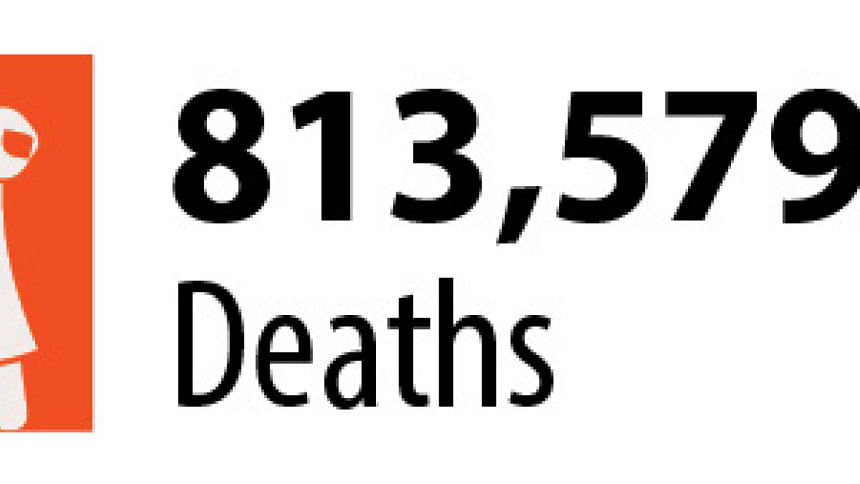Coronavirus Vaccine: 172 countries engaged

Some 172 countries are engaging with the COVAX facility designed to ensure equitable access to Covid-19 vaccines, the World Health Organization said yesterday, but more funding is needed and countries need now to make binding commitments.
Countries wishing to be part of the global COVAX plan have until August 31 to submit expressions of interest, WHO officials said, with confirmation of intention to join due by September 18, and initial payments due by October 9.
WHO Director General Tedros Adhanom Ghebreyesus said the facility was critical to ending the Covid-19 pandemic, and would not only pool risk for countries developing and buying vaccines, but also ensure prices are kept "as low as possible".
"Vaccine nationalism only helps the virus," he told a media briefing. "The success of the COVAX facility hinges not only on countries signing up to it, but also filling key funding gaps."
COVAX is co-led by the GAVI vaccines alliance, the WHO and the CEPI Coalition for Epidemic Preparedness Innovations and is designed to guarantee equitable access globally to Covid-19 vaccines once they are developed and authorised for use.

It currently covers 9 candidate Covid-19 vaccines and its aim is to secure supplies of and deliver 2 billion doses across countries that sign up by the end of 2021.
"Initially, when there will be limited supply (of Covid-19 vaccines), it's important to provide the vaccine to those at highest risk around the globe," Tedros said.
He said this included health workers on the front lines of the pandemic, who were "critical to saving lives and stabilising the overall health system".
COVID-19 PLASMA
The world health body was cautious about endorsing the use of recovered Covid-19 patients' plasma to treat those who are ill, saying evidence it works remains "low quality" even as the United States issued emergency authorization for such therapies.
So-called convalescent plasma, which has long been used to treat diseases, has emerged as the latest political flashpoint in the race to find therapies for Covid-19, reports Reuters.
The US Food & Drug Administration (FDA) on Sunday authorised its use after President Donald Trump blamed the agency for impeding the roll-out of vaccines and therapeutics for political reasons.
The technique involves taking antibody-rich plasma from patients who have recovered from Covid-19 and giving it to those who are suffering from severe active infections in hopes they will recover more quickly.
Soumya Swaminathan, WHO chief scientist, said only a few clinical trials of convalescent plasma have produced results, and the evidence, at least so far, has not been convincing enough to endorse it beyond use as an experimental therapy. While a few trials have showed some benefit, she said, they have been small and their data, so far, inconclusive.
"At the moment, it's still very low-quality evidence," Swaminathan told a news conference. "So we recommend that convalescent plasma is still an experimental therapy, it should continue to be evaluated in well-designed randomised clinical trials."
Evidence is conflicting: One Chinese study showed plasma from people who have recovered from coronavirus failed to make a difference in hospitalised patients, while another, pooled analysis showed it can lower the risk of death.
One challenge, Swaminathan added, was plasma's variability, since it is drawn from many different people, producing a product that is less-standardised than monoclonal antibodies crafted in the lab.
WHO's senior adviser Bruce Aylward added that beyond plasma's efficacy, there were also potential safety risks that must be vetted.
"There are a number of side effects," Aylward said, ranging from mild fevers to severe lung injuries or circulatory overload. "For that reason, the clinical trial results are extremely important."
The US National Institutes of Health this month announced it was giving several million dollars toward a mid-stage convalescent plasma trial.
EXTENDED LOCKDOWNS
Many governments around the world are renewing efforts -- including the reimposition of lockdowns -- to contain the virus, which has infected well over 24 million people.
New Zealand yesterday extended the lockdown of its biggest city to Sunday as it battled a small but persistent outbreak.
Auckland went into lockdown on August 12, a day after the virus re-emerged in the city and ended New Zealand's run of 102 days without local transmission.
European nations have also tightened border restrictions, wary of new virus clusters.
Strict border controls came into effect in Finland yesterday, with arrivals from just a handful of countries able to enter without virus restrictions, reports AFP.
Norway had already tightened its border controls on Saturday, while South Korea's capital yesterday ordered masks to be worn in both indoor and outdoor public places for the first time.
Indonesian authorities have banned foreign tourists from Bali, a popular holiday destination, for the rest of 2020 -- scrapping plans to open up the island from next month.

 For all latest news, follow The Daily Star's Google News channel.
For all latest news, follow The Daily Star's Google News channel. 



Comments